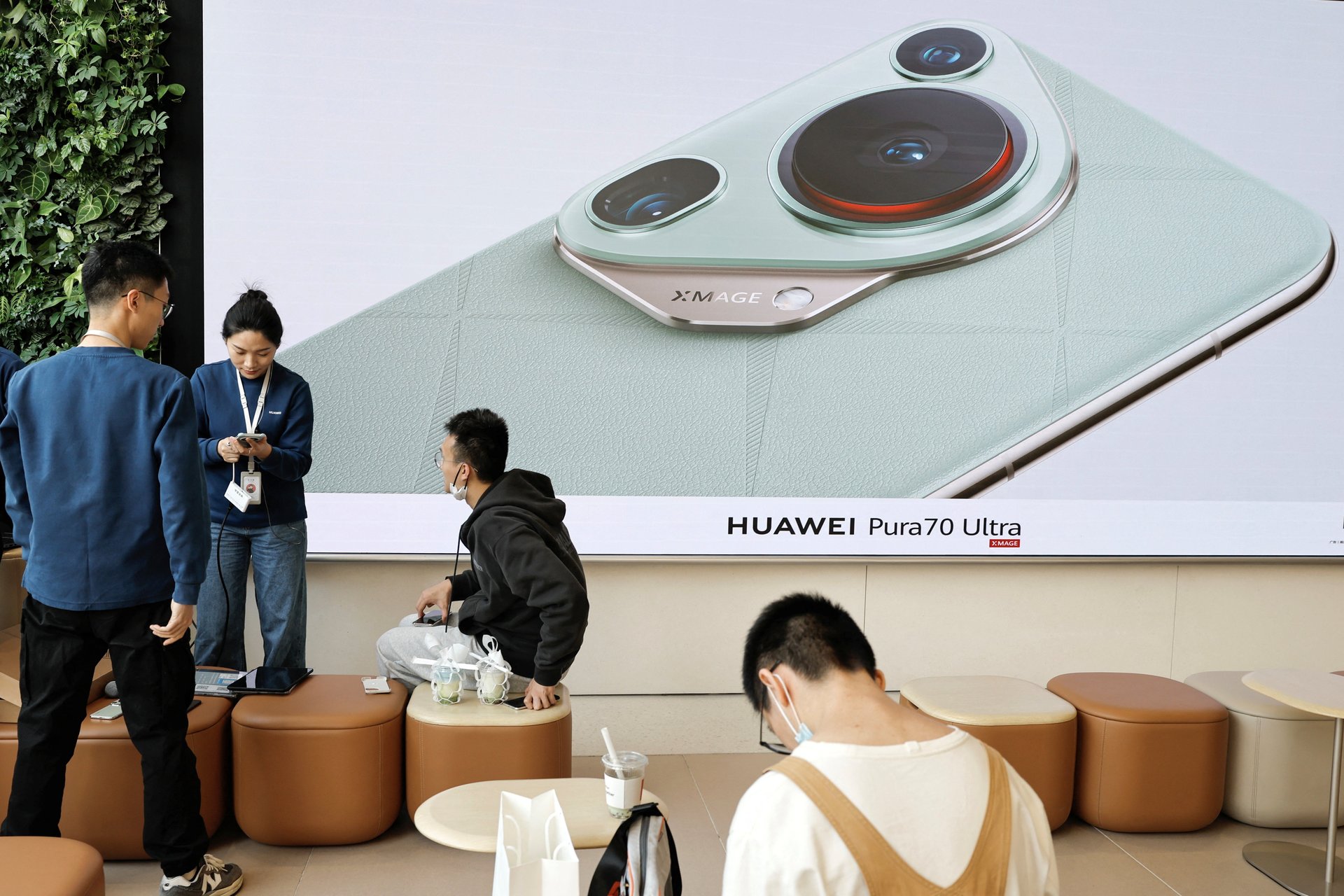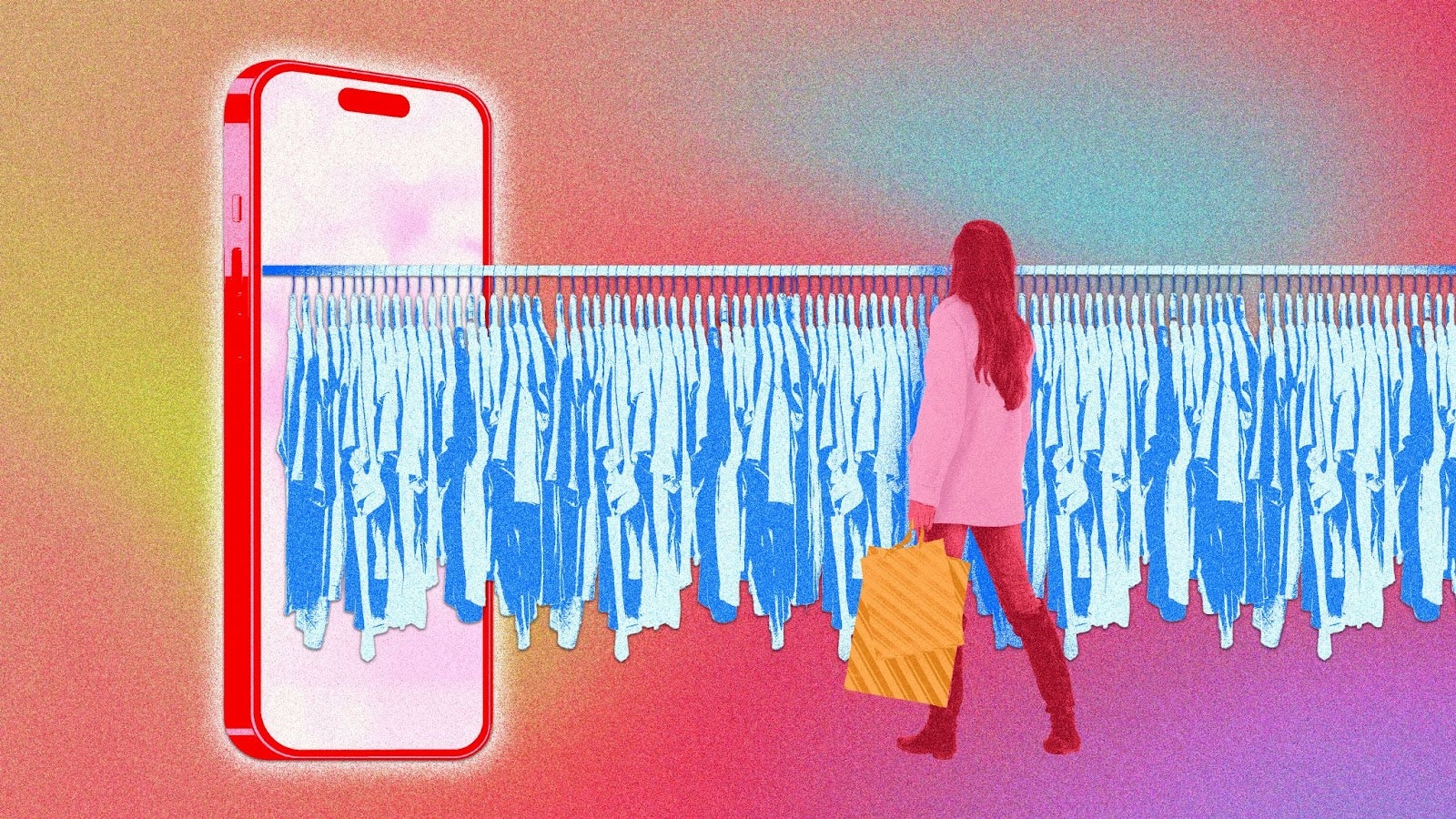🌏 Huawei munches on Apple
Plus: Ozempic may be coming for Big Tobacco and Alcohol.

Good morning, Quartz readers!
Suggested Reading
Here’s what you need to know
Apple had its worst quarter in China since 2020. iPhone sales in the country fell 19% to start the year, driven down by competition from its homegrown rival Huawei.
Related Content
Amazon debuted a new food delivery service. The low-cost option could help it stay ahead of competitors like Walmart and Target. Meanwhile, Amazon drone delivery is leaving California and coming to Arizona.
Google fired 20 more workers after protests. The terminations come after the tech giant dumped more than two dozen employees last week following protests against its cloud computing contract with the Israeli government.
UnitedHealth Group’s hackers got cash. The parent company of the largest health insurer in the U.S confirmed that it paid a ransom in relation to a cyberattack earlier this year.
Ozempic is worrying cig and booze companies
It’s not only food CEOs who need to worry about their bottom lines thanks to in-demand weight loss drugs like Ozempic. Big Tobacco and Alcohol have reason to fret, too.
A new report from Morgan Stanley finds that people using GLP-1 drugs — among them Ozempic, Wegovy, Mounjaro, and Zepbound — reduce their consumption of tobacco and alcohol while taking the medications.
The decreases were significant: 40% of the 300 survey respondents said they smoked cigarettes at least weekly before starting a GLP-1 treatment, but only 24% said the same afterward. And about 56-62% of alcohol consumers on GLP-1s reported drinking less alcohol, with about 14-18% cutting their alcohol consumption entirely.
What is the algorithm, really?

Bought something you don’t need from an ad? Blame it on the algorithm. Disappointing singles on your dating app? Blame it on the algorithm. Come across a post that hits too close to home?
Yep, it’s the algorithm. But what exactly is the algorithm — and what have ancient Babylon and Greek mathematicians got to do with it?
In the season finale of the Quartz Obsession podcast — The algorithm: Letters of recommendation — Quartz reporter Bruce Gil tells host Gabriela Riccardi about the origins of the algorithms shaping what we stream, shop, and see online today.
👓 Or, read the transcript
Surprising discoveries
There’s an AI service that says it can translate baby cries. The app is supported by the World Health Organization, MIT, and Google.
Emily Dickinson used a lot of exclamation points!!! “Your welcome letter found me all engaged in the history of Sulphuric Acid!!!!!,” she once wrote in a letter. That’s five!!!!!
A NASA satellite almost got hit by Russian space junk. The objects came within less than 30 feet of each other.
Bubble tea is making half a dozen billionaires in China. The sweet times may be popped by competition, though.
A lot of valuable metal is ending up in landfills. Recycling electronic waste could lower our reliance on resource-intensive mining practices.
Did you know we have two premium weekend emails, too? One gives you analysis on the week’s news, and one provides the best reads from Quartz and elsewhere to get your week started right. Become a member or give membership as a gift!
Our best wishes for a productive day. Send any news, comments, dog translation apps, and Emily Dickinson exclamations to [email protected]. Today’s Daily Brief was brought to you by Morgan Haefner.